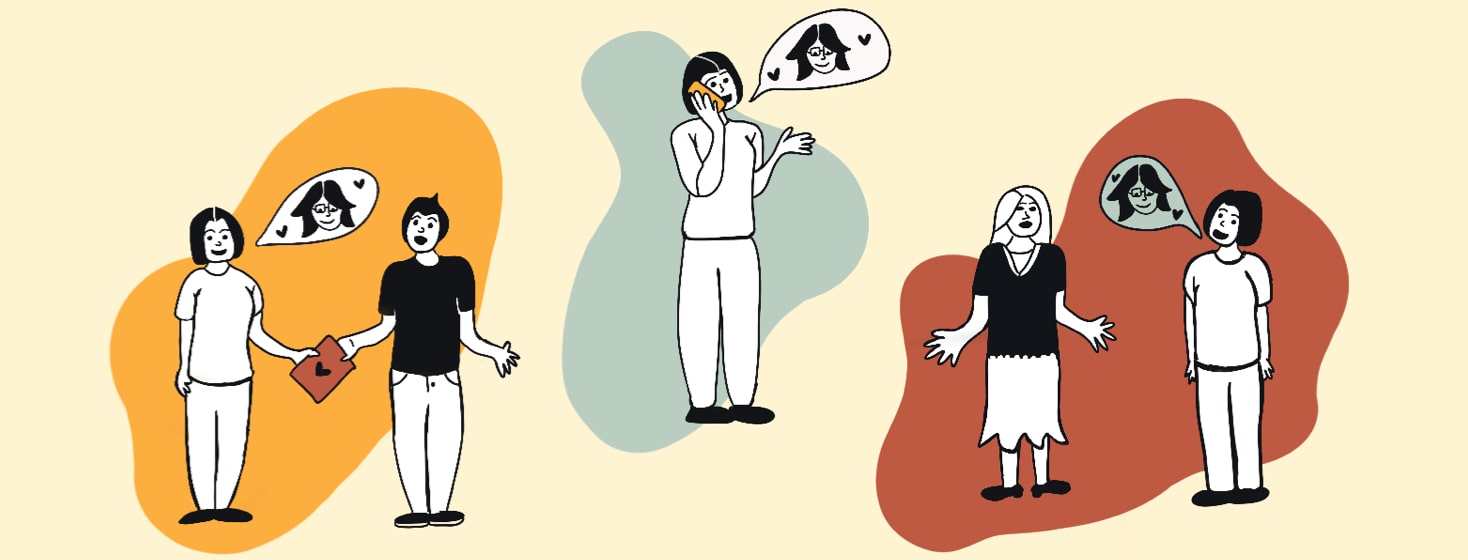Is It Okay to Tell People About Your Loved One's Alzheimer's Diagnosis?
When my mom was first diagnosed with early-onset Alzheimer's, I went out of my way to avoid telling people about her diagnosis. I didn't want anyone to find out. I was ashamed and embarrassed. I didn't want anyone to know.
My parents only told immediate family and close friends about her diagnosis. They were pretty reluctant to tell a lot of people because my mom was ashamed and embarrassed as well.
Keeping their independence and dignity?
In many ways, I felt like by not telling people I was helping my mom keep her secret. I felt like I would have been betraying her if I started telling a lot of people what was really going on.
Although my mom never specifically asked me not to tell anyone, I felt like there was this unspoken promise that we would keep it to ourselves.
After a while, I started noticing that my mom's abnormal behavior was causing people to treat her differently. My mom was still young at the time, and she didn't look like anything was wrong with her, but she acted strangely at times. She was slow and reluctant to do things. She got easily confused. She said things that didn't quite make sense. And something about her just seemed off.
Disclosing an Alzheimer's diagnosis
Since people we came into contact with didn't know any better, they would become easily frustrated and impatient with my mom. They would look at her like she was crazy or stupid. They thought she was just being difficult, and they would try to rush her along.
I found myself wishing that I could tell them what was really going on with her. Maybe they would treat her better if they knew she had a cognitive disease.
Telling people about mom's "secret"
Eventually, I realized that by keeping my mom's secret I was actually doing her more harm than good. I thought I was protecting her dignity and independence by not telling anyone about her diagnosis, but I was actually doing the opposite.
I found that when I pulled someone aside to tell them about my mom or called ahead of time to let them know, they were likely to be more patient and understanding with my mom than they would have been if they didn't know.
Disclosing an Alzheimer's diagnosis
There are many ways to discreetly tell someone about your loved one's Alzheimer's diagnosis without involving your loved one in the conversation.
You can pull someone aside or call them ahead of time. You can buy those little cards that say your loved one has cognitive impairment and slip them to someone when you say hello. You can find creative ways to explain your situation without embarrassing your loved one.
It may feel like a betrayal to expose your loved one's diagnosis, especially if they have specifically asked you not to tell anyone. But over time, it will become harder for your loved one to hide the fact that they're struggling, and people will begin to notice on their own.
Explaining their diagnosis and that they may need more time or assistance can go a long way in protecting your loved one's dignity and independence. How have you managed to disclose an Alzheimer's diagnosis? What did you consider? Let us know in the comments below, or share your story with the community.

Join the conversation